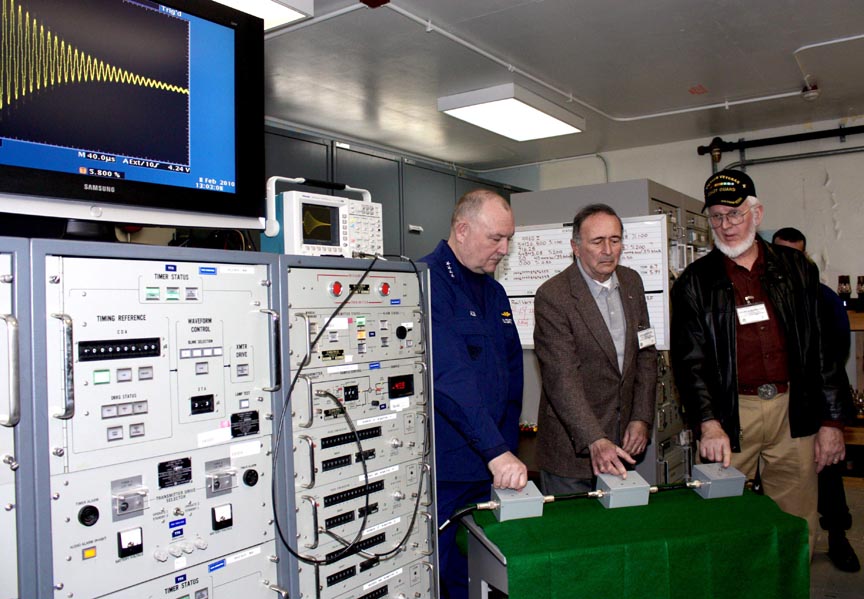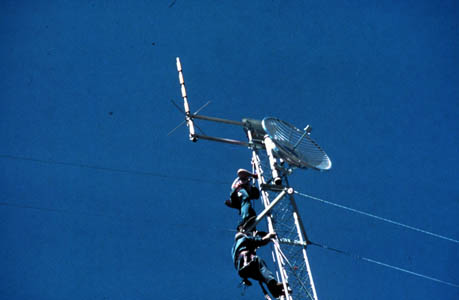Exelis, UrsaNav, Inc., the Department of Homeland Security’s Science and Technology Directorate (DHS S&T), and the U.S. Coast Guard (USCG) have entered into a cooperative research and development agreement (CRADA) to test and demonstrate enhanced Loran (e-LORAN) service from former LORAN-C sites.
These sites are the legacy ground-based radio navigation infrastructure of the decommissioned LORAN-C service that could be retained and upgraded to provide eLORAN low frequency service.
Exelis, UrsaNav, Inc., the Department of Homeland Security’s Science and Technology Directorate (DHS S&T), and the U.S. Coast Guard (USCG) have entered into a cooperative research and development agreement (CRADA) to test and demonstrate enhanced Loran (e-LORAN) service from former LORAN-C sites.
These sites are the legacy ground-based radio navigation infrastructure of the decommissioned LORAN-C service that could be retained and upgraded to provide eLORAN low frequency service.
The team will evaluate eLORAN as a potential complementary system to GPS use throughout the United States. The capabilities and potential methods of eLORAN use will be explored in depth to identify all strengths, capacities, and potential vulnerabilities of the technology, according to UrsaNav and Exelis.
Under the CRADA, Exelis will use the former LORAN-C assets to transmit eLORAN signals for research, test, and demonstration purposes. The goal of the CRADA is to evaluate the ability of eLORAN to meet precise positioning, navigation, and timing (PNT) requirements of government and privately owned critical infrastructure.
The first station from which Exelis will broadcast is located in Wildwood, New Jersey. The broadcast will provide a usable signal at a range up to 1,000 miles. UrsaNav conducted eLORAN timing tests from the facility under an earlier USCG CRADA.
“eLORAN is an ideal technology to complement GPS for critical, resilient and assured PNT,” said Ed Sayadian, vice president of Civil & Aerospace Systems for Exelis. “eLORAN is a difficult to disrupt technology that offers PNT and wide area broadcast data capabilities indoors, in underground locations and other GPS-denied environments.”
“A preponderance of government, academic, and industry reports have concluded that eLORAN is the best independent, multi-modal solution to provide assured PNT as a complement to GPS,” said Chuck Schue, president and CEO of UrsaNav.
Exelis and UrsaNav have entered into this CRADA because they believe that low frequency signals, such as eLORAN, which operate independently of GPS signals, can provide alternative timing, either standalone, or as a component of a PNT service. Exelis also believes that many civil and defense applications require an independent precise time or position capability in GPS-denied environments.






